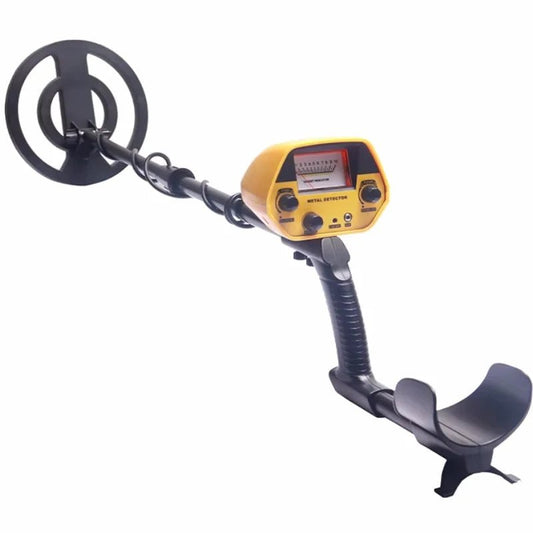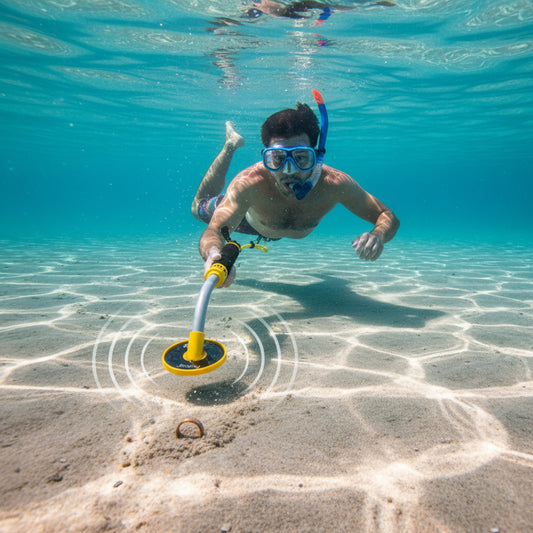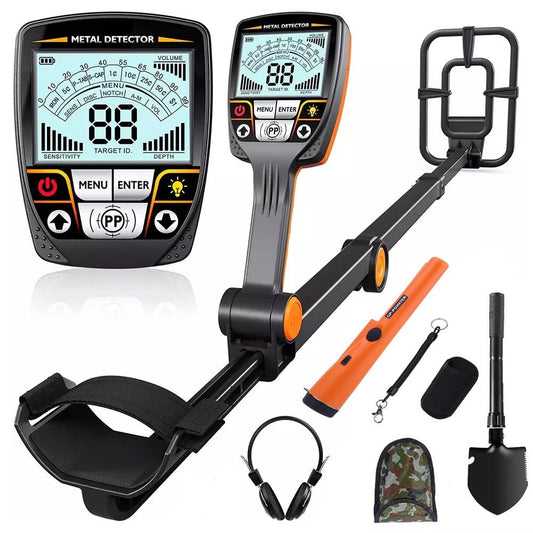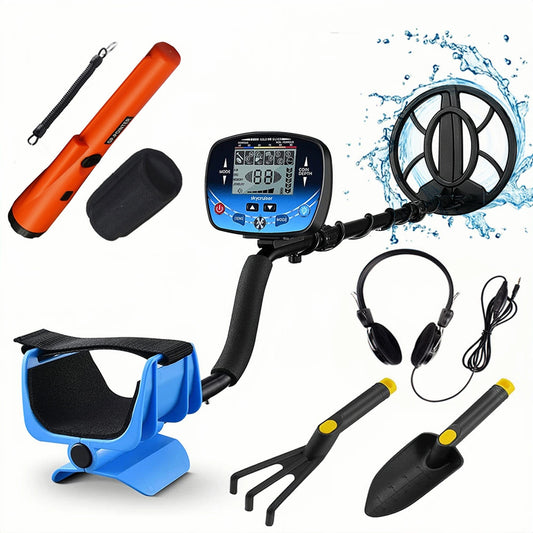
Can You Use Metal Detectors on the Beach? A Comprehensive Guide
Share
Metal detecting on the beach is one of the most popular activities for treasure hunters. The combination of lost items, shifting sands, and scenic views makes beaches ideal for detecting. But can you use metal detectors on the beach?
The answer depends on local regulations and specific locations. This guide will explore everything you need to know about using metal detectors on the beach, including laws, tips, and top spots in 2025.
Can You Use Metal Detectors on the Beach?

The short answer is yes, in most cases. Beaches are among the most detector-friendly locations, but there are important considerations:
-
Public Beaches: Metal detecting is generally allowed on public beaches unless restricted by local ordinances.
-
Private Beaches: Detecting on private beaches requires permission from the property owner.
-
Protected Areas: Beaches within national parks or wildlife reserves may have strict prohibitions.
Laws and Regulations for Beach Metal Detecting

Before heading out to detect, familiarize yourself with local rules:
United States
-
General Rules: Most public beaches allow metal detecting.
-
National Parks: Metal detecting is prohibited on beaches within national parks .
-
State Parks: Regulations vary by state; some state park beaches allow detecting with permits.
United Kingdom
-
Crown Estate Beaches: Many UK beaches are owned by the Crown Estate and permit metal detecting .
-
Protected Sites: Detecting near archaeological sites or shipwrecks requires special permissions.
Australia
-
Public Beaches: Generally open for detecting.
-
Indigenous Sites: Avoid areas with cultural significance unless permitted.
Always check with local authorities or park management for specific rules before starting your hunt.
Why Are Beaches Great for Metal Detecting?

Beaches are ideal for metal detecting because:
-
High Traffic Areas: Crowds often lose coins, jewelry, and other valuables.
-
Shifting Sands: Tides and storms can uncover hidden treasures.
-
Easy Digging: Sand is easier to dig compared to hard soil or rocky terrain.
-
Scenic Environment: Enjoy stunning views while treasure hunting.
Best Beaches for Metal Detecting
Here are some of the best beaches for metal detecting around the world:

United States
-
Myrtle Beach, South Carolina
-
Clearwater Beach, Florida
-
Huntington Beach, California
United Kingdom
-
Blackpool Beach
-
Brighton Beach
-
Bournemouth Beach
Australia
-
Bondi Beach, New South Wales
-
Surfers Paradise, Queensland
-
Glenelg Beach, South Australia
Tips for Successful Beach Metal Detecting

To maximize your success when using metal detectors on the beach:
1. Time Your Hunt
-
Early mornings or late evenings are less crowded.
-
Low tide exposes more ground for detecting.
-
After storms can reveal new treasures.
2. Focus on High-Traffic Areas
-
Near lifeguard stations
-
Around beach entrances
-
Along paths leading to parking lots
3. Use a Waterproof Detector
Invest in a detector designed for wet sand and shallow water to expand your search area.
4. Adjust Settings for Wet Sand
Saltwater can interfere with signals; use a pulse induction or multi-frequency detector for better results.
5. Dig Responsibly
Fill in all holes after digging to ensure safety and preserve the beach's appearance.
Learn the best beach metal detecting tips.
Common Finds When Detecting on Beaches

Beach metal detecting often yields a variety of interesting finds:
-
Coins: Modern currency lost by beachgoers.
-
Jewelry: Rings, necklaces, bracelets—sometimes made of precious metals.
-
Lost Items: Keys, phones, sunglasses.
-
Historical Artifacts: Occasionally uncovered in older coastal areas.
Safety Considerations for Beach Metal Detecting
Beach environments can pose unique challenges:
-
Stay Hydrated: Bring water to avoid dehydration under the sun.
-
Protect Yourself from Sunburn: Wear sunscreen and a hat.
-
Watch Tides: Be aware of rising tides to avoid getting stranded.
-
Avoid Crowded Areas During Peak Hours: For safety and courtesy.
Environmental Responsibility While Detecting on Beaches

Metal detecting enthusiasts should always practice responsible detecting:
-
Remove Trash Items: Help clean up the beach while hunting.
-
Respect Wildlife Areas: Avoid disturbing nesting sites or protected habitats.
-
Report Significant Finds: Historical artifacts may need to be reported to authorities.
The Future of Beach Metal Detecting
As we look towards 2025 and beyond:
-
Advanced Detectors: Improved waterproof models with better discrimination settings.
-
Eco-Friendly Practices: Increased focus on environmental preservation while detecting.
-
Growing Popularity: More organized events and competitions centered around beach metal detecting.
Conclusion: Embracing Treasure Hunting on Beaches
So, can you use metal detectors on the beach? In most cases, yes—but always check local regulations before starting your hunt. Beaches offer fantastic opportunities for treasure hunters due to their high traffic areas, shifting sands, and scenic environments.
By following best practices, respecting local laws, and using proper equipment, you can enjoy successful and responsible beach metal detecting adventures in 2025 and beyond.
Whether you're searching for lost jewelry in wet sand or uncovering historical artifacts near coastal towns, beach metal detecting combines fun with potential rewards that make it one of the most exciting aspects of this hobby.
Happy hunting—and may your next trip to the beach be filled with golden discoveries!





1 comment
Hi there, I was hoping to detect on old Hunstanton beach as I have in the past on wet sand when the tides out. Just looked it up online to find it’s prohibited on beach. Would that include the wet sand when the tide is out? Many thanks, Tom.